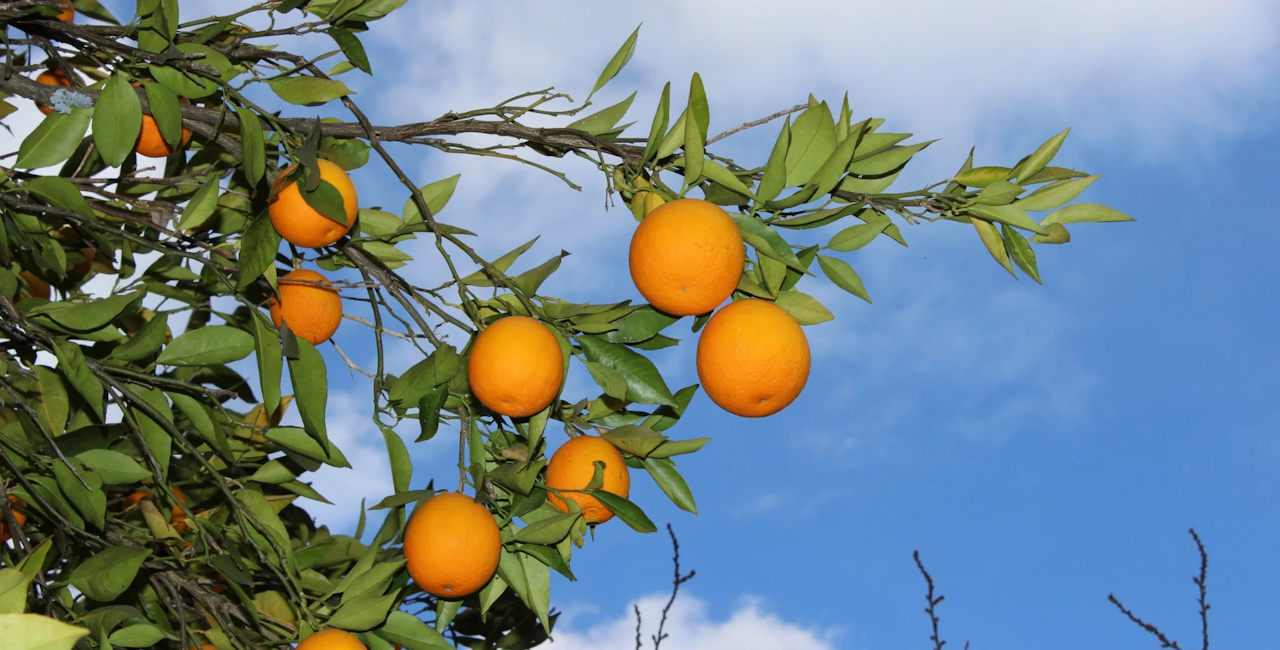Currently Empty: ₹0.00

Nestled in the picturesque landscapes of Uttarakhand, India, the Malta fruit is a delightful treasure of the region. Known for its tangy flavor, vibrant color, and exceptional health benefits, Malta has become an integral part of the state’s cultural and agricultural heritage. This citrus fruit, often compared to oranges, thrives in the cool climate and fertile soils of the Himalayan foothills, making it a cherished produce of the region.
A Unique Citrus Delight
Malta (Citrus sinensis) belongs to the family of sweet oranges but stands out due to its distinct taste and aroma. It has a thick, bright orange peel and juicy pulp with a perfect balance of sweetness and tanginess. While it resembles an orange in appearance, Malta’s flavor profile is more robust, with a refreshing zest that sets it apart.
The fruit is widely grown in Uttarakhand’s hilly districts, such as Nainital, Almora, and Pithoragarh. The cool, temperate climate of these regions provides the ideal conditions for Malta cultivation, ensuring the fruit’s high quality and flavor.
Cultural and Economic Significance
In Uttarakhand, Malta is more than just a fruit; it is a symbol of the state’s agricultural vitality and cultural traditions. The fruit has been cultivated in the region for centuries and is deeply rooted in the local way of life. Farmers often grow Malta in their orchards, and the fruit serves as a source of income as well as nourishment.
Malta’s economic significance extends beyond local markets. The fruit is increasingly being promoted as a specialty produce of Uttarakhand, attracting attention from national and international buyers. Efforts by the government and local organizations to market Malta as a unique product have boosted its demand, contributing to the livelihoods of countless farmers in the region.
Nutritional Powerhouse
Malta is not only delicious but also packed with nutrients. It is an excellent source of vitamin C, which boosts immunity and promotes skin health. The fruit also contains dietary fiber, potassium, and antioxidants, making it a wholesome addition to any diet.
Regular consumption of Malta can help improve digestion, regulate blood pressure, and reduce the risk of chronic diseases. Its high antioxidant content aids in combating free radicals, contributing to overall well-being. Malta juice, in particular, is a popular choice among health-conscious individuals, offering a refreshing and nutritious beverage.
Culinary Versatility
The versatility of Malta extends to the culinary world, where it is used in a variety of dishes and beverages. Freshly squeezed Malta juice is a favorite drink in Uttarakhand, especially during the summer months. The fruit’s tangy flavor makes it an excellent ingredient for desserts, jams, marmalades, and candies.
In traditional Uttarakhand cuisine, Malta is often used to prepare tangy chutneys and sauces that complement local dishes. Its zest and pulp are also incorporated into baked goods, adding a citrusy twist to cakes and pastries. The fruit’s unique flavor profile makes it a sought-after ingredient among chefs and home cooks alike.
Sustainable Farming Practices
Malta cultivation in Uttarakhand is largely carried out using sustainable farming practices. Farmers in the region rely on traditional methods, such as organic fertilizers and natural pest control, to grow the fruit. These eco-friendly practices not only preserve the environment but also ensure the superior quality of the produce.
In recent years, there has been a growing emphasis on promoting organic Malta farming. Government initiatives and agricultural programs are helping farmers adopt sustainable techniques and improve their yield. This shift towards organic farming is enhancing the fruit’s appeal in domestic and international markets, where there is a rising demand for organic produce.
Challenges and Opportunities
Despite its many advantages, Malta cultivation faces several challenges. Climate change, unpredictable weather patterns, and limited access to modern farming techniques pose significant hurdles for farmers. Additionally, the lack of proper storage and transportation facilities affects the fruit’s marketability.
However, these challenges also present opportunities for growth and innovation. Investments in infrastructure, research, and marketing can help unlock the full potential of Malta cultivation. By leveraging the fruit’s unique qualities and promoting it as a premium product, Uttarakhand can position Malta as a key player in the global citrus market.
Conclusion
Malta is more than just a fruit; it is a reflection of Uttarakhand’s natural beauty, agricultural heritage, and cultural richness. With its delightful flavor, nutritional benefits, and economic significance, Malta holds a special place in the hearts of the people of Uttarakhand. As efforts to promote and sustain Malta farming continue, this vibrant citrus fruit is set to shine as a symbol of the state’s prosperity and resilience.


